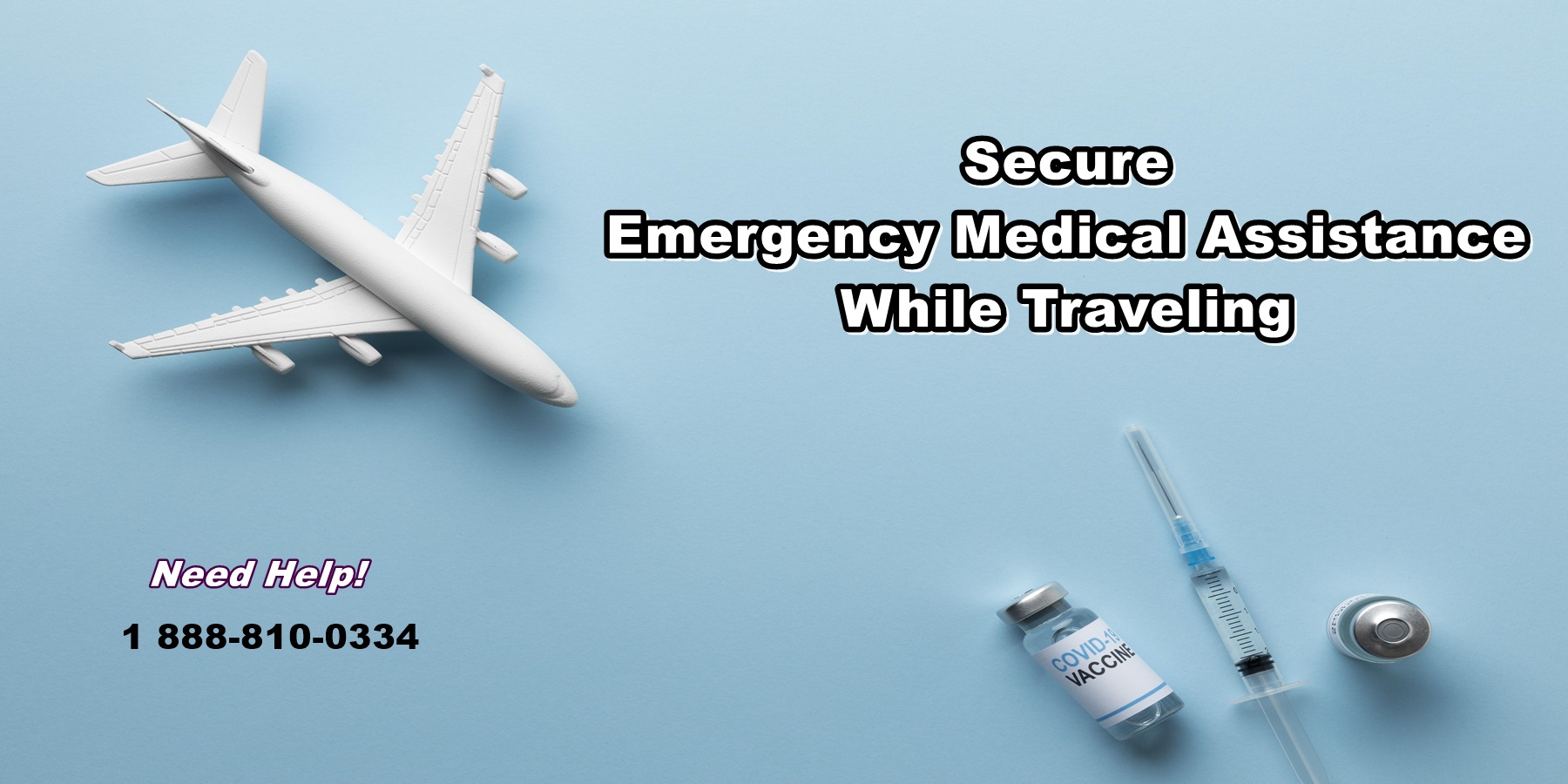As an avid traveler, you’re eager to explore new destinations and immerse yourself in different cultures. But have you considered the potential health risks that come with venturing beyond your home country? Unforeseen medical emergencies can arise during international travel, leading to substantial medical bills and unexpected disruptions. To ensure a safe and secure journey, it’s crucial to prioritize your health and well-being by investing in travel medical insurance. This comprehensive guide will provide you with essential information and practical tips to navigate healthcare systems abroad, select the right insurance plan, and safeguard your health while traveling the world.
Prepare for the Unexpected: The Importance of Travel Medical Insurance
Venturing beyond your home country unveils a world of captivating experiences, but it also introduces potential health risks and unexpected medical emergencies. While the allure of foreign lands beckons, it’s crucial to prioritize your well-being and take proactive measures to ensure a secure journey.
Unforeseen medical situations can arise during international travel, posing significant financial challenges. Medical expenses in foreign countries can be exorbitantly high, far exceeding those in your home country. Hospitalization, medical procedures, and medications can quickly accumulate, leading to substantial financial strain. Without adequate medical coverage, you may find yourself in a distressing situation, struggling to manage unexpected medical bills and potentially jeopardizing your financial stability.
Travel medical insurance emerges as a vital safeguard against these unforeseen circumstances like Medicaid Insurance. It provides comprehensive coverage for medical emergencies, hospitalization, and other healthcare expenses incurred during international travel. This invaluable investment offers peace of mind, knowing that you can access quality medical care without the constant worry of escalating costs. Your financial protection ensures that you can focus on enjoying your travels, secure in the knowledge that you’re well-prepared for any medical eventualities that may arise.
Beyond medical emergencies, overseas medical care often covers trip cancellation, trip interruption, lost or delayed baggage, and emergency medical evacuation. This comprehensive protection ensures that you can travel with confidence, knowing that you’re covered for a wide range of potential disruptions.
Remember, travel medical insurance is not just a financial safeguard; it’s an investment in your peace of mind and overall travel experience. By securing this essential coverage, you can embark on your international adventures with confidence, knowing that you’re prepared for the unexpected and can fully immerse yourself in the joys of travel without unnecessary worries.
Understanding Coverage Options: Types of Travel Medical Insurance
Travel medical insurance plans come in various types, each tailored to different travel needs and durations. Understanding the coverage options available is crucial to selecting the plan that best suits your travel requirements.
- Fixed Coverage Plans: As the name suggests, these plans provide a fixed amount of coverage for specific medical expenses, such as hospitalization, emergency medical evacuation, and medical repatriation. They are often more affordable compared to comprehensive plans and are suitable for short-term trips or travelers with limited medical concerns. However, it’s important to carefully review the coverage limits and exclusions before purchasing a fixed coverage plan to ensure it meets your needs.
- Comprehensive Plans: Comprehensive travel medical insurance plans offer more extensive coverage compared to fixed coverage plans. They typically include coverage for a wide range of medical expenses, including hospitalization, emergency medical evacuation, medical repatriation, prescription medications, and even routine medical check-ups. These medical plans are ideal for travelers with pre-existing medical conditions or those planning extended trips to remote or high-risk destinations.
- Short-Term Plans: Designed for trips lasting less than a year, short-term travel medical insurance plans provide coverage for medical emergencies and unexpected healthcare expenses during your travels. They are a good option for leisure travelers, business travelers, and students participating in short-term study abroad programs.
- Long-Term Plans: If you’re planning an extended trip or living abroad for an extended period, long-term travel medical insurance plans offer comprehensive coverage for medical expenses over a longer duration. These plans typically provide coverage for up to several years and may include additional benefits such as coverage for routine medical check-ups and preventive care.
When selecting a travel medical insurance plan, carefully consider the type of coverage you need, the duration of your trip, and any pre-existing medical conditions you may have. It’s also important to compare different plans from reputable insurance providers to find the best coverage at a competitive price.
Stay Safe and Healthy: Precautionary Measures for Travelers
To ensure a safe and healthy international trip, it’s crucial to take precautionary measures beyond securing travel medical insurance. Research and stay informed about the health and safety situation at your destination. Familiarize yourself with any disease outbreaks, local laws, cultural norms, and emergency contact information. Pack a basic first-aid kit containing essential medications, bandages, and remedies for common ailments. Prioritize hydration by drinking only purified or boiled water to avoid waterborne illnesses. Dress appropriately for the climate and terrain, ensuring comfort and protection from the elements. Follow local customs and respect cultural sensitivities to avoid misunderstandings or conflicts. By taking these steps, you can significantly reduce the risk of health-related issues and ensure a more enjoyable and worry-free travel experience.
Navigating Healthcare Systems Abroad: Tips for Seeking Medical Assistance
Navigating healthcare systems abroad can be daunting, especially during a medical emergency. Here are some tips to help you seek medical assistance while traveling:
- Familiarize yourself with the local healthcare system: Research the healthcare system at your destination before you travel. Understand how it works, including the types of healthcare facilities available, the standard of care, and the payment options. Learn about any specific procedures or protocols that may be in place, such as the need for a referral from a primary care physician before seeing a specialist.
- Carry important documents: Keep essential documents with you at all times, including your passport, visa (if required), travel medical insurance policy, and a copy of your medical records. Make sure your travel medical insurance policy is valid for the duration of your trip and provides adequate coverage for your needs.
- Communicate effectively with healthcare professionals: If you don’t speak the local language, consider bringing a phrasebook or using a translation app to help you communicate with healthcare professionals. Be clear and concise when describing your symptoms and medical history. If necessary, ask for a translator or interpreter to assist you.
- Stay calm during a medical emergency: In case of a medical emergency, try to stay calm and composed. Follow the instructions of local healthcare professionals and emergency services. If you are hospitalized, ask about the hospital’s policies and procedures, including visiting hours and payment options. Contact your medical insurance provider as soon as possible to inform them of the situation and seek guidance on coverage and claims.
By following these tips, you can better navigate healthcare systems abroad and ensure you receive appropriate medical assistance when needed. Remember, prevention is always better than cure, so take necessary precautions to stay healthy and safe during your travels.
Peace of Mind: Choosing the Right Medical Insurance Plan
Choosing the best travel medical insurance plan can be overwhelming, but by considering a few key factors, you can ensure that you have the right coverage for your trip.
First, consider your destination. Some countries have higher healthcare costs than others, and you’ll want to make sure your plan provides adequate coverage for those areas. You should also consider the activities you plan to participate in. If you’re planning on doing any high-risk activities, such as scuba diving or mountain climbing, you’ll need a plan that covers those activities.
Next, think about your health. If you have any pre-existing medical conditions, you’ll need to make sure your plan covers those conditions. You should also consider your age and overall health when choosing a plan.
Finally, compare different plans and find the best one for your needs. Consider the coverage limits, deductibles, and copayments of each plan. You should also read the reviews of different plans to see what other travelers have to say about them.
By taking the time to choose the right travel medical insurance plan, you can give yourself peace of mind knowing that you’re protected if you have a medical emergency while traveling.



